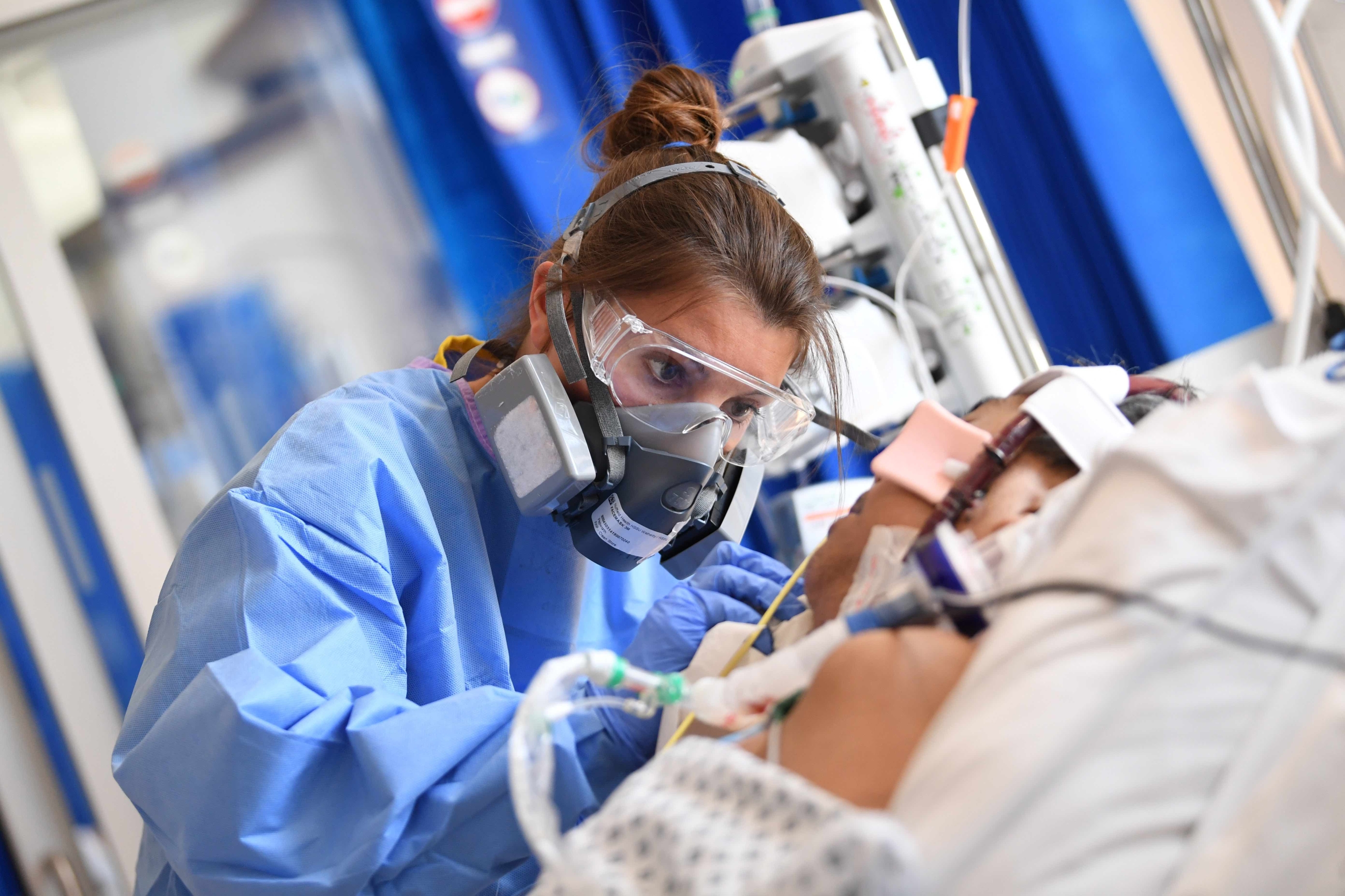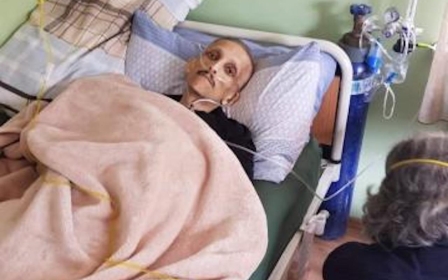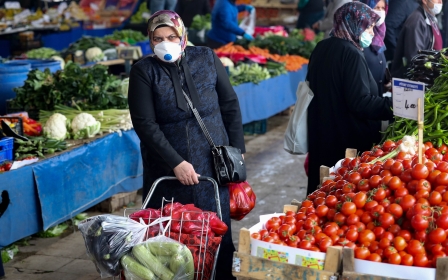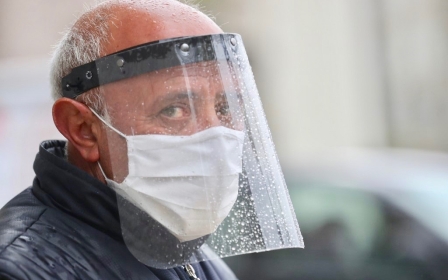UK-Turkey PPE fiasco: Faulty gowns 'nothing to do with us', say Turkish officials

A British government order for a shipment of Turkish personal protective equipment (PPE) for medical workers that has been declared unusable was a private business transaction that had nothing to do with the Turkish government, officials in Ankara have told Middle East Eye.
British officials said on Wednesday that the shipment purchased from Istanbul-based textile firm Selegna, which reportedly includes 400,000 protective gowns, had been impounded in a warehouse near London's Heathrow Airport since its delivery at the end of last month.
Officials said that the gowns were below the acceptable standard and could put National Health Service (NHS) staff at risk.
“This is a private business affair,” a Turkish official said. “If they believe the manufacturer didn’t meet their standards, they could ask them to reproduce the order. Or they could ask for a refund.”
A senior Turkish official said the Turkish government was not involved in any capacity in producing, packaging or delivering the batch of equipment to the United Kingdom.
New MEE newsletter: Jerusalem Dispatch
Sign up to get the latest insights and analysis on Israel-Palestine, alongside Turkey Unpacked and other MEE newsletters
"This is not an intergovernmental issue," they said in a statement on Thursday.
Another Turkish source questioned the British government attitude: “Haven’t they inspected the samples from the company before making the purchase?” the source asked.
The shipment itself has been problematic since Robert Jenrick, the British communities minister, said on 18 April that 84 tonnes of personal protective equipment (PPE) would arrive from Turkey the next day.
The pledge was made amid widespread concern about shortages of PPE equipment for frontline health workers treating coronavirus patients, and a growing number of deaths among medical staff, and reports of some resorting to using plastic rubbish bags for protection.
'Only 2,500 gowns'
Turkish officials last month told MEE that Ankara wasn’t aware of the transaction until the delivery date and Selegna didn’t have the export permit needed for the shipment.
“Nor did they have enough gowns to send to Britain, they only had 2,500 gowns,” a Turkish official said at the time. The official said the firm didn’t have even basic capabilities such as a proper online system to file an application to get the exemption.
"The Turkish government authorised this sale, despite an export ban, out of solidarity with UK authorities," the senior Turkish official said.
A Royal Air Force flight was able to load 10 percent of its cargo capacity, nearly four tonnes, on 22 April after the Turkish Health Ministry rushed to supply the missing gowns from state medical company Ushas, a Turkish source with knowledge of the shipment said.
Istanbul Chamber of Commerce records indicate Selegna, the producer company, was established in January to manufacture coats, suits, raincoats, socks and shirts.
Turkish officials said it was still too early to decide whether an investigation against Selegna was needed for the failed shipment, as the British government still had not revealed details of its decision to declare the gowns as faulty.
A spokesperson for Selegna told BBC that the company had not received complaints about the quality of gowns from the British government as of Wednesday. He also added that all fabric and the factories were certified.
The British government confirmed that it regarded the PPE supplies as sub-standard.
A Department of Health and Social Care spokesperson told MEE: “This is a global pandemic with many countries procuring PPE, leading to shortages around the world, not just the UK.
“All deliveries of PPE are checked to ensure the equipment meets the safety and quality standards our frontline staff need. If equipment does not meet our specifications or pass our quality assurance processes, it is not distributed to the frontline.”
Ambassador: UK grateful to Turkey
But, in a further twist in the saga, Dominick Chilcott, the British ambassador in Turkey, later suggested in a post on Twitter that only a "small number of gowns from a private supplier have failed tests" and said that the "majority of that consignment is still awaiting testing in the UK and in Turkish warehouses".
Chilcott also said the consignment was not connected to earlier supplies provided by the Turkish government as a "gift" to the UK.
"The UK government remains very grateful to the Turkish government for its support of the UK’s requirements for PPE," Chilcott wrote.
But British officials responsible for procuring PPE were angered by the episode. Mark Roscrow, chair of the Health Care Supply Association, which represents people procuring for the NHS, told the Daily Telegraph newspaper: "Something very wrong has happened here.
"We are being told that the people in charge know how to secure this vital equipment on our behalf. But the checks and balances clearly haven't been applied correctly."
The episode has exposed a growing row between the Department of Health and 10 Downing Street, which attempted to distance itself from the health minister's promises to ramp up coronavirus testing to 100,000 a day.
The attempt to import 400,000 items of PPE was announced in April, a few hours after the publication of a report in the Financial Times that criticised the UK government's attempts to acquire more ventilators, and shortly before the Sunday Times reported that UK government ministers had repeatedly ignored health professionals' demands that they quickly acquire more PPE.
Middle East Eye delivers independent and unrivalled coverage and analysis of the Middle East, North Africa and beyond. To learn more about republishing this content and the associated fees, please fill out this form. More about MEE can be found here.




